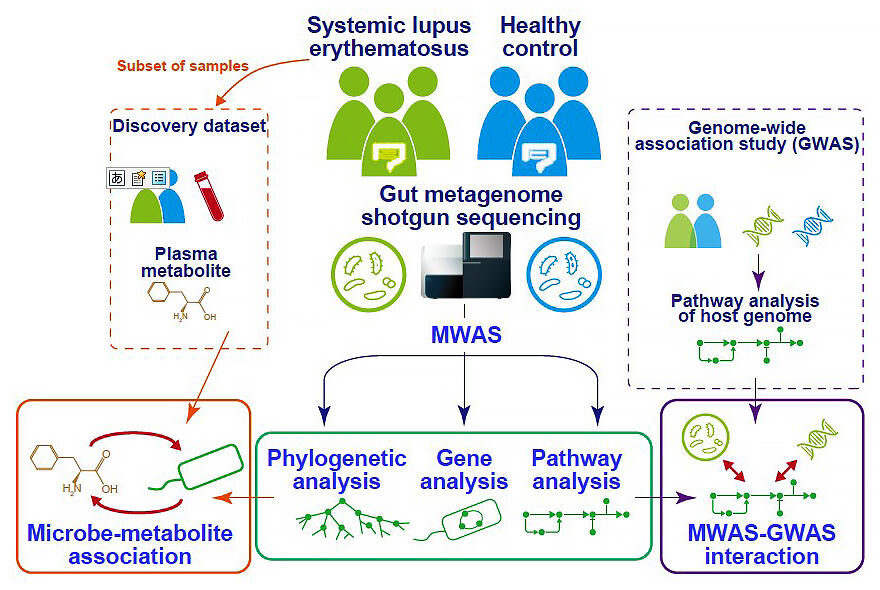The research group of Yoshihiko Tomofuji (graduate student) and Professor Yukinori Okada of the Graduate School of Medicine, Osaka University reported on August 25 that the abundance of two bacterial strains belonging to the genus Streptococcus was greater in the intestinal flora of Japanese patients with systemic lupus erythematosus than in healthy subjects. They also revealed a relationship between intestinal flora composition and blood metabolites. They performed a metagenome-wide association study on the gut microbiota of a Japanese patient population suffering from the disease. The results they obtained may facilitate better understanding of systemic lupus erythematosus and were published in the British scientific journal Annals of the Rheumatic Diseases.
Systemic lupus erythematosus is an autoimmune disease where patients typically present with a butterfly rash on the cheeks and causes various symptoms in multiple organs, including the kidneys, lungs, and brain. There are currently between 60,000 and 100,000 such patients in Japan. Incidence of this disease is high in women, and both environmental and genetic factors are thought to contribute to its onset. Since it is a relatively rare disease, details of its pathophysiology and onset mechanism remain unknown.
In this study, metagenomic shotgun sequencing was performed for intestinal microflora genomes in 47 Japanese patients with systemic lupus erythematosus and 203 healthy individuals. Using this approach, the researchers performed an integrated analysis of systemic lupus erythematosus, intestinal flora, and blood metabolites. The metagenome-wide association analysis confirmed an increase in the abundance of two species of Streptococcus bacteria--Streptococcus anginosus and S. intermedius--in the intestinal flora of the patients when compared to that in the healthy subjects.

Credit: Yoshihiko Tomofuji
In the gut microbiota of the patient group, changes in genes and pathways associated with the immune system, decreased bacterial diversity in the gut microbiota, and disruption of the intestinal flora (dysbiosis) were confirmed. These changes have also been observed in inflammatory bowel disease and many other conditions. Upon testing for an association between the two upregulated bacterial species in the patient group and blood metabolites in these patients, these researchers found a positive dosage correlation between S. intermedius and acylcarnitine. Since acylcarnitine is associated with inflammation, these upregulated bacterial strains may be involved in activating the inflammatory response in this disease.
This article has been translated by JST with permission from The Science News Ltd.(https://sci-news.co.jp/). Unauthorized reproduction of the article and photographs is prohibited.




